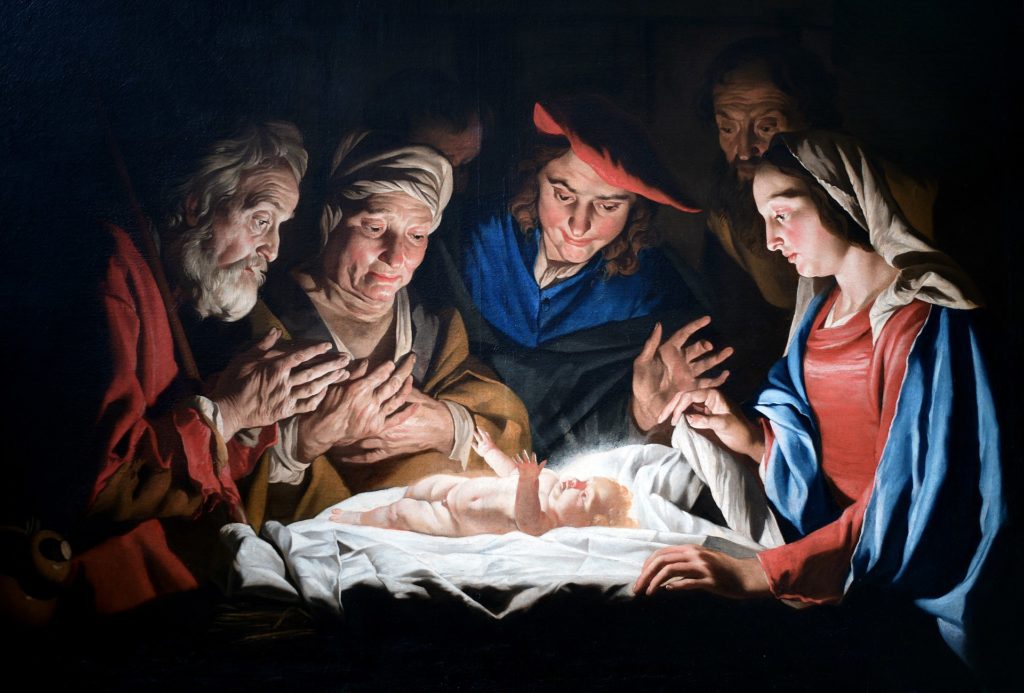JUDGMENT
This post involves the second secret of the Christian faith; however before I get to it, I need to provide some background.
BACKGROUND
We live in a time of lawlessness. Some see the lawlessness in police forces which overstepped their power and who have oppressed people. Others see the lawlessness in criminal activities which are permitted and not punished.
Due to the removal of the Ten Commandments from our schools, courts and society we have been left with a comfusing set of statutes and an abandonment of clear and absolute moral direction. Instead of having clearly defined right and wrong, we have substituted situational ethics and a moral code which constantly shifts. There is no absolute right or wrong. This has also been reflected in our society in which there are no absolute genders. Both our moral codes and our genders are viewed as being on a sliding scale.
Right and wrong have become 50 shades of gray so to speak. It is almost impossible to define wrong because the boundaries of what is right are constantly expanding. Abortion and divorce were once considered to be wrong but now they are right. Sexual identity seems to be expanding quickly with parents and children able to adjust gender. Multiple marriage or group sexual arrangements all were once considered wrong but again moral creep goes on. The same is true with sex with minors, the teaching of sexual alternatives in school, the reeducation of children as to what is acceptable at the grade school level and the growth of acceptable euthanasia. The limits of what is moral constantly are more and more circumscribed and the acceptability of what is permitted from a moral perspective is ever growing.
The responsibility for choices in the moral arena are being erased. People commit crime because they are in poverty. They are excused for their actions because of their upbringing and because of problems which they have encountered in their life. In short, they are no longer responsible. It is not their fault. And if for some reason, they experience guilt, a counselor or psychologist is made available to them to deal with guilt. And if that does not work, there is drug therapy. Where there are no laws and no standard, guilt is reduced. Therefore the removal of the standard is met with approval and supported by so-called enlightened intelligentsia.
SECRET DOCTRINE
The secret doctrine of the Christian Faith is the eternal judgment. You probably have not heard many sermons at church about it. Churches today want people to feel welcome. They want to provide judgment- free zones where all of us feel welcome.
Further Christianity takes the position that ALL of us are sinners. As a general rule, man seems to be born with a propensity to sin. Sin comes easily to us as a people. Our parents engaged in sin and we do as well-all of us. Sin is simply not doing what God tells us to do. It is missing the mark of God’s plan for us. It is not only doing “bad” things like murder but it includes putting things above God, lusting for what is not ours, envying the success of others and many other thoughts and actions contravening God’s commands to us. Keeping the 10 Commandments is simply too much for us. In addition there were a variety of other laws and commands which Hebrews sought to keep but often failed to keep. To make things worse, sin was just not just disobeying God’s rules and transgressing his direct commands but it also involved not doing the things we know that we should do but do not do. We know that we should feed the hungry, give drink to the thirsty, provide clothing to those who need clothing, but we fail to do so. Sometimes we deliberately don’t do so; but other times we are too lazy or even fail to see the needs because we are too busy taking care of the affairs of our life. We build our own houses before we build the House of God.
Both Christianity and Judaism have a doctrine which is a key doctrine of belief. That doctrine is the doctrine of an eternal, final judgment. In essence, that doctrine states that at some future date, God directly or indirectly will settle accounts. There will come a time when our actions will be revealed and judged. For good actions there will be some type of good reward and for bad actions there will be a penalty. In short, the accounts will be trued up. We will be held responsible for what we do and for what we did not do.
We do not like to be judged. We do not want to be held responsible for our actions. If we are Joseph Stalin, we do not want to be judged even if we have callously killed millions. We want an excuse. We want ot escape condemnation. We have a number of ways by which we seek to avoid responsibility. We excuse ourselves. We say we were having a “bad day.” We compare ourselves to those worse than us. As one of my children said after he had done something particularly bad: “Well, at least I am not Adolph Hitler.” In other words I may be bad but I am not as bad as the next guy or gal. “I was tired; I was lazy; I forgot. We have all used these excuses.
Dispite all of our excuses, the doctrine of the Judgment stands like a rock. It says that a day is coming when an answer will need to be given for our attitudes and our actions as well as our failure to do what was right. In Hebrews 6:2, the eternal judgment is described as one of “the elementary teachings about Christ.”
The fact there is an eternal judgment is a good thing. It causes us to have a justifiable fear of doing wrong and encourages us to fear God. For instance, electricity does wonderful things for me and my family. It blesses us but I have a healthy respect for it and don’t stick a kitchen knife in one of our electrical sockets. A healthy fear protects me from my foolishness. And so by fearing God, our actions are better and we become better people. The fear of God is the beginning of wisdom. (Prov. 9:10 ). The genesis of much of the crime and evil today is that there is no belief that there will be a judgment upon the actions taken. Society has exorcized the concept that there is an absolute law which should not be violated. Even where someone believes in an absolute right and wrong, society has given a number of “outs” to avoid being punished for transgressions of that law. Some of our excuses might be being born with desires you can not control, the inability to control your actions due to your genetic make-up or mistakes made in your up-bringing. Arguments are made that you really had no free will not to do the action. Therefore you are excused and exempt from judgment and punishment because you had no free will. If you have no free will you are not to be punished. In short you are free from the charges because of a “temporary insanity” or you did your actions without knowledge of the law or you did the actions without thinking and without malice and afore thought.
So society is willing to excuse your actions if you are clever enough to come up with an excuse and you are awarded a “get out of jail free” card and not held accountable.
Another approach is to legitimize our sin. Here is an example of how extreme anger might be legitimized. Assume that there is a group of really angry people who form an organization legitimizing their anger known as Really Angry People or “Rap”. Here are some things which they might do.
- Set up anger groups
- Teach that anger is often righteous. God was angry. Jesus was angry and formed a whip and chased people out of the temple.
- Develop anger flags such as a red fist on a white circle and a black background known as the anger flag.
- Point out that some people are born with intense anger issues. This issue is inate and can not be changed. People trying to change it are misled; they are haters and they are bigots.
- Legislation is passed that no person can be discharged because of intense anger issues. In fact they should not be encouraged to change but should be affirmed in their anger.
- The Supreme Court agrees that RAP people can not be discharged for their intense anger.
- The benefits of anger are taught in colleges and College RAP groups are set up.
- Psychiatrists testify that some people are born with intense anger, they can not change from being angry and they should be affirmed in their anger. In fact trying to change this innate problem will have profound adverse pychological affects on angry people.
- People not subscribing to RAP are haters. They are forbidden to post on social media, they are discharged from professorships in Colleges. They are labelled as haters and bigots.
- RAP gives vast sums to politicians supporting the RAP positions.
- RAP leaders are lionized by Hollywood as being leaders and full of power and wisdom.
- RAP now not only has an equal place in society but an exalted place. Their supporters control votes and those who do not adhere to the RAP principles are now considered to be second class citizens and idiots.
- RAP is taught to children in schools.
- Churches are encouraged to embrace RAP and to have RAP ministers. After all, Jesus loves everybody.
- Corporations generously support RAP to show that they are enlightened and caring. In addition, they don’t want angry people to boycott their stores or to burn or loot them.
So in this instance anger has been legitimized. In short, enough support for the behavior has been garnered to make anger acceptable. Man basically says, “We don’t care what the Word of God says about anger; we say anger is not a sin.” We declare anger acceptable.
As was written on a Facebook post: “First we overlook evil. Then we permit evil. Then we legalize evil. Then we promote evil. Then we celebrate evil. Thenwe persecute those who still call it evil.”
An eternal judgment where God’s word is in charge is a frightening prospect to those who have said “our word is in charge not God’s.”
The idea of an eternal judgment where absolute truth will rule is more than just a fly in the ointment, it is an elephant in the ointment and we do not want to deal with it because it makes us feel uncomfortable. Therefore the eternal judgment, though being an essential doctrine or teaching of Christianity, becomes the invisible elephant in the room. It is not preached about or emphasized because we don’t want people to be uncomfortable. We want people to feel loved and welcome. We do want to tell our guests in church they have a terrible malignant cancer of sin which will have to be dealt with. Most of us suspect that we have this cancer of sin; but we don’t like to think about it or face it until we recognize that it is fatal and its effects have become obvious to those around us.
The good news is that even though we have the fatal disease of sin, we have a way of dealing with it. However that way, is a drastic course of action which involves us committing our life to acknowledge and follow Christ. We call this the way of the cross. It is drastic and painful to give our wills over to Jesus Christ and to begin to say “not my will be done, but thine by done on earth as in heaven.” It is causing our flesh to go to the cross. It is painful and we do not want to do so unless we conclude it is absolutely necessary. And, indeed, it is necessary that we might have life.
Now let’s learn more about the eternal judgment as seen by the Jews in the Old Testament.
Perhaps the clearest view of the Last Judgment is seen in Daniel 7:9-14. That description follows:
“As I looked, thrones were set in place, and the Ancient of Days took his seat,
His clothing was as white as snow; the hair of his head was white like wool.
His throne was flaming with fire,
and its wheels were all ablaze.
A river of fire was flowing, coming out from before him.
Thousands upon thousands attended him; ten thousand times ten thousand stood before him.
The court was seated and the books were opened…
In my vision at night I looked, and there before me was one like a son of man,
coming with the clouds of heaven. He approached the Ancient of Days and
was led into His presence. He was given authority, glory, and sovereign power;
All nations and peoples of every language worshiped him.
His dominion is an everlasting dominion that will not pass away, and his
kingdom is one that will never be destroyed.”
This description was of the final judgment where the books would be opened and people would be judged for their deeds. That judgment was by God, who is described as the Ancient of Days. This description would resound in Jewish history and echoes into the future in writings of John in the Book of Revelation. Obviously, early Chrisitians had no difficulty identifying the one who was “like a son of man “ and given authority, glory , and sovereign power and who was worshipped by all nations and peoples with a never-ending dominion”. That one like the son of man is Jesus Christ.
The Book of Daniel ends with another description of the last judgment at Daniel 12:2 which states, “Multitudes who sleep in the dust of the earth will awake; some to everlasting life, others to shame and everlasting contempt.”
At the end of Malachi we run into the concept again of the “great and dreadful day of the Lord.” (Malachi 4:5). That day is described in Malachi 4:1-2 as follows:
“Surely the day is coming; it will burn like a furnace. All the arrogant and every evildoer will be stubble and the day that is coming will set them on fire, says the Lord Almighty. Not a root or a branch will be left to them. But for you who reverence my name, the sun of righteousness will rise wlth healing in its rays.”
In the New Testament we find that Jesus describes this Last Judgment in detail at Matthew 25:31-46 which is set forth below:
“When the Son of Man comes in his glory, and all the angels with him, he will sit on his glorious throne. All the nations will be gathered before him, and he will separate the people one from another as a shepherd separates the sheep from the goats. He will put the sheep on his right and the goats on
his left. “ Jesus will bless those who have fed the hungry, given the thirsty drink and invited the stranger in. He blessed those who clothed the naked and cared for the sick and visited those in prison. When people asked when they blessed Jesus by doing these things, Jesus responded : “Truly I tell you whatever you did for one of the least of these brothers and sisters of mine, you did for me.” (Matt. 25:43). Those who cared for the followers of Jesus were to be blessed. Those who failed to care for them failed to care for Jesus himself. Their desiny is described at Matt. 25:46; “Then they will go away to eternal punishment but the righteous to eternal life.”
The warning of Jesus is sobering. How we treat those who follow Jesus is how we treat Jesus. Moreover, we need to be careful not to be too restrictive as to who we define as the followers of Jesus. It is better to err on making the group too large rather than too small.
However, the principle is clear. Jesus saw himself as the “son of man” as that term is used in the Daniel prophecies. He further was certain that judgment was to be entrusted into his hands. In both Matthew 10:15 and Matthew 11:24 uses the phrase: “But I tell you that it will be more bearable for Sodom on the day of jedgment than for you.” Jesus saw himself as the son of man who was entrusted with judging the nations.
Jesus denounced the towns which rejected him. Matthew 11:20-24 states:
“Then Jesus began to denounce the towns in which most of his miracles had been perforemed, because they did not repent. Woe to you, Chorasin! Woe to you, Bethsaida For if the miracles that were performed in you had been performed in Tyre and Sidon, they would have repented in sackcloth and ashes. But I tell you, it will be more bearable for Tyre and Sidon on the day of judgment than for you. And you, Capernaum, will you be lifted to the heavens? No, you will go down to Hades. For if the miracles that were performed in you had been performed in Sodom, it would have remained to this day. But I tell you that it will be more bearable for Sodom on the day of judgment than for you.”
These are not happy words for us today. We have all of the teachings of the Old Testament and the teachings of the New Testament. We are on the other side of the physical resurrection of Jesus Christ. We are surrounded by the word of God. God had witnessed his faithfulness not only through his written word, his Living Word through Jesus and through the miracles of nature and the witness of the sun, moon and stars. Instead of rushing to repent, we have shook our fist at God and said that our word overides his word. Our prospects are not good.
Another insight on how Jesus saw the end of the age and the final judgment is found in Matthew 13:40-43 which states:
“As the weeds are pulled up and burned in the fire, so it will be at the end of the age. The Son of Man will send out his angels, and they will weed out of his kingdom everything that causes sin and all who do evil. They will throw them into the blazing furnace, where there will be weeping and gnashing of teeth. Then the righteous will shine like the sun in the kingdom of their Father. Whoever has ears, let them hear.”
Again, Jesus refers to himself with the Daniel term “son of man.” There is an absolute certainty in Jesus that the Final Judgment will occur and the good will be rewarded and the evil will be punished.
The imagery of the final judgment as found in Daniel appears again in the Book of Revelation 20:11-15 where it is continued and elaborated on. That description is worth carefully noting and is described as follows:
“Then I saw a great white throne and him who was seated on it. The earth and the heavens fled from his presence, and there was no place for them. And I saw the dead, great and small, standing before the throne, and books were opened. Another book was opened, which is the book of life. The dead were judged according to what they had done as recorded in the books. The sea gave up the dead that were in it and death and Hades gave up the dead that were in them and each person was judged according to what they had done. Then death and Hades were thrown into the lake of fire. The lake of fire is the second death. Anyone whose name was not found written in the book of life was thrown into the lake of fire.”
To summarize, there is a judgment and everyone will be judged. We are responsible for our actions, we are responsible for our response to the word of God; we are responsible as to how we treat God’s people in particular and others in general. We are accountable.
There is also mention of the “The Lamb’s Book of Life.” This is a book or list of those people who have followed God and been obedient to His word. As Christians we believe it is the list of those who have accepted the blood offering of Jesus Christ to redeem us from the Prince of this World (Satan/Evil) and bring us into the family of God. It is those who have been called and have chosen to accept the invitation of Jesus Christ to forsake all and follow him. Although all of our works, both good and bad will be exposed and revealed by God, we look to the blood of the Son of God to cleanse us from our evil works and shortcomings, which are many. We recognize that all of us sin. Some sin more; some sin less. We are the ones who meekly accept God’s invitation to be a part of His kingdom and His family. We realize, accept, enjoy and glorify the grace of God which has been extended to us .
Those who reject God and His word, they too have a destiny. They get just what they have desired, an existence without the fellowship of God and God’s people. This may be viewed as hell, fire, or the local Jerusalem garbage dump and an area where idolatrous Jews sacrificed their children to false gods (Gahenna). Whatever it is, they are left with what they have chosen for themselves instead of what God has chosen and wanted for them. It is ironic that the destiny of those not following God is the same place as the area where innocent children were killed and aborted.
As I said in the beginning, a discussion of the Final Judgment and the results of rejecting God is not a comfortable conversation. Yet sometimes uncomfortable conversations must be had. By knowing the consequences, we can avoid the consequences. The good news is that God is a God of mercy, kindness, and forgiveness. The fear of God is the beginning of wisdom. By fearing the results of rejecting God and his word, we can choose to accept the word of God and walk in His mercy. The choice is up to you. However, you can be assured that a judgment will come in the future and it will come regardless of whether people believe it will come or not.




